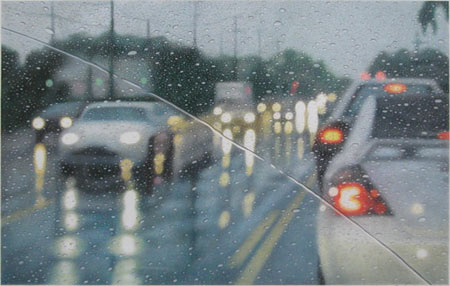
Originally from Pennsylvania and educated at the Minneapolis College of Art and Design, Elizabeth Patterson relocated to Los Angeles in 1979. She received a great deal of attention as a young artist and, though she worked in numerous mediums, she showed a strong proclivity for graphite and color pencil work rendered in a realistic style. A devastating hand injury suffered in 1984 made drawing impossible for her and initiated a long hiatus from art-making.
She traveled to Hawaii in 1986. There she began to explore the magnificent wonders below the sea’s surface, unaware that those aquatic impressions, images, accents, textures, reflections and refractions would resurface thirteen years later when, to her own astonishment, she found herself able to draw once again. If art were a sport (and thankfully, it’s not!) Patterson would deserve “the career comeback award.”
“Of all things, water is best…” penned the ancient Greek poet Pindar, and it is a sentiment with which Patterson would surely agree. Indeed, the magic of water both signifies and saturates every graphite and/or Prismacolor drawing in “Chasing the Rain;” it is in fact an integral part of the method and strategy of each piece’s creation.
On rainy days and nights, while in her car driving through the freeways and surface streets of Los Angeles, Patterson would stop and snap the photographs on which she would base these drawings. The raindrops on her car’s windshield and in the air both distort the objects appearing beyond the car’s windshield in alluringly visual ways and transform the glass into a kinetic proscenium. In turn (no street pun intended), the city becomes the drawings’ cinematic stage on which a choreography of cars dance betwixt and between buildings, street lights, billboards, palm trees and distant hillsides.
Like Edward Hopper’s famous New York City paintings, where the inward countenances of lone individuals signal an ambiguous emotional state suggestive of either alienation or introspection, Patterson’s L.A.-scapes of cars careening through glistening rivulets of streets feel both ecstatically free and monstrously trapped by their mechanical modus operandi.
What’s more, Patterson stamps each piece with the specific time and street coordinates pertaining to its source snapshot. Each work then becomes a kind of found object, unique by virtue of its collection of akimbo forms poised in coincidental configurations and random distances. Patterson’s use of solvent in these drawings augments the rain-induced fluidity of the pieces as well as softens the work’s textures and colors, adding another layer of expressive complexity.
It all adds up to art carefully balanced between expert draftsmanship and lyrically poetic feeling. The following poem employs the philosophy of the Geneva School of Criticism, which, put simply, posits that the best insight into a work of art is another work of art. The poem that follows, then, uses images and meter to further enrich the artist’s subjectivity and delve more emotionally into ideas Patterson’s drawings symbolically express.
[Note — the bracketed numbers that appear in the poem indicate references to specific art works, which are indicated as footnotes following the poem — Ed.]
Chasing the Rain
I.
Logic and cliché agree that
L.A.’s car culture
must clash with art,
for doesn’t the muse decree a
slower connection with the
ground and a
lighter
foot on imagination’s gas petal?
Don’t freeway frenetics and the cloned cloginesses
of surface streets
simply block
the soul’s soft passageway
home? Until Elizabeth Patterson
opens them up into dances of
anti-disasters. (1)
Her black and white
graphite pencils seek the
sleek chiaroscuros of
oily corners driven by
headlight-illuminate
raindrops staged
between the windshield’s mobile proscenium.
Slick sights first
snapped as photos labeled
with times and street names,
become random composition soldered
into permanence on a
Strathmore illustration board. (2)
2.
In her Prismacolor group
buildings breathe buoyed by moisture’s
suppleness
supported by the artists’ tender touch
much as Edward Hopper’s New York
nightscapes simultaneously
mitigate and magnify
his figures’ loneliness, (3)
two cinematic expressivenesses as if
in life’s resolved tensions alone
lies the soul best hope
for restoration and repose, (4)
Once
incapacitated
by a hand injury but
now with her
dexterity restored
Patterson takes
in hand the hard
task of creativity again
and delivers the goods
over roads drenched in adventure,
the hero’s journey
embarked on…
abstract ogres
smeared in and out of being
by wild windshield wipers… (5)
travails transformed into treasures
presented in a ripeness
that nourishes all
and for all
to see.
- Andy Brumer
(1) “Ventura Blvd at Laurel Terrace, 6PM,” 2009.
(2) “Sherman Oaks, 10PM,” 2008.
(3) “Sunset at Sweetzer, 11PM,” 2008.
(4) “Bedford Drive, 5PM,” 2008.
(5) “Idleman Road, 3PM,” 2010.
Media for all works: in color pencil, graphite, and solvent on Strathmore Illustration board.
Published courtesy of ArtSceneCal ©2010
